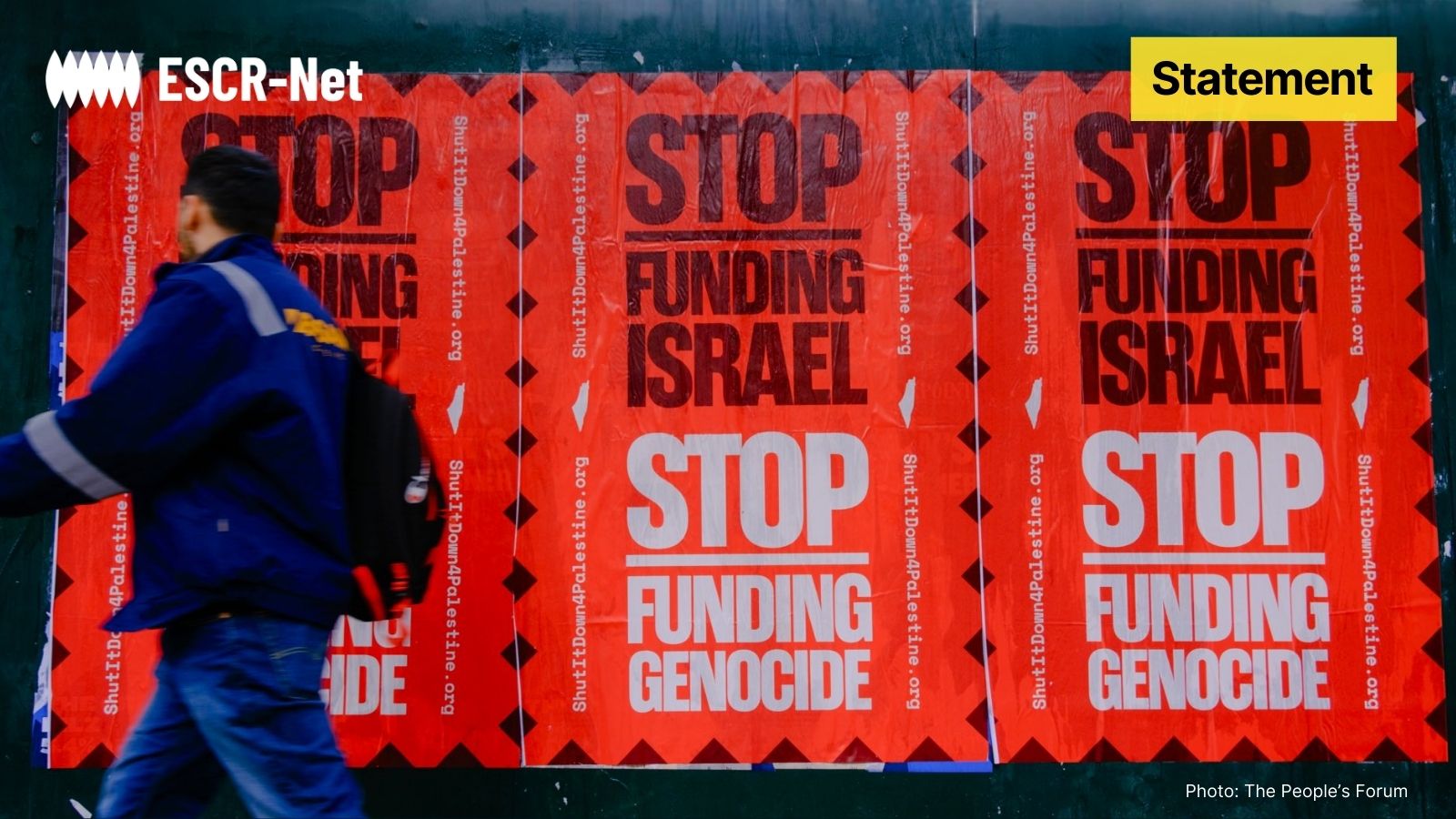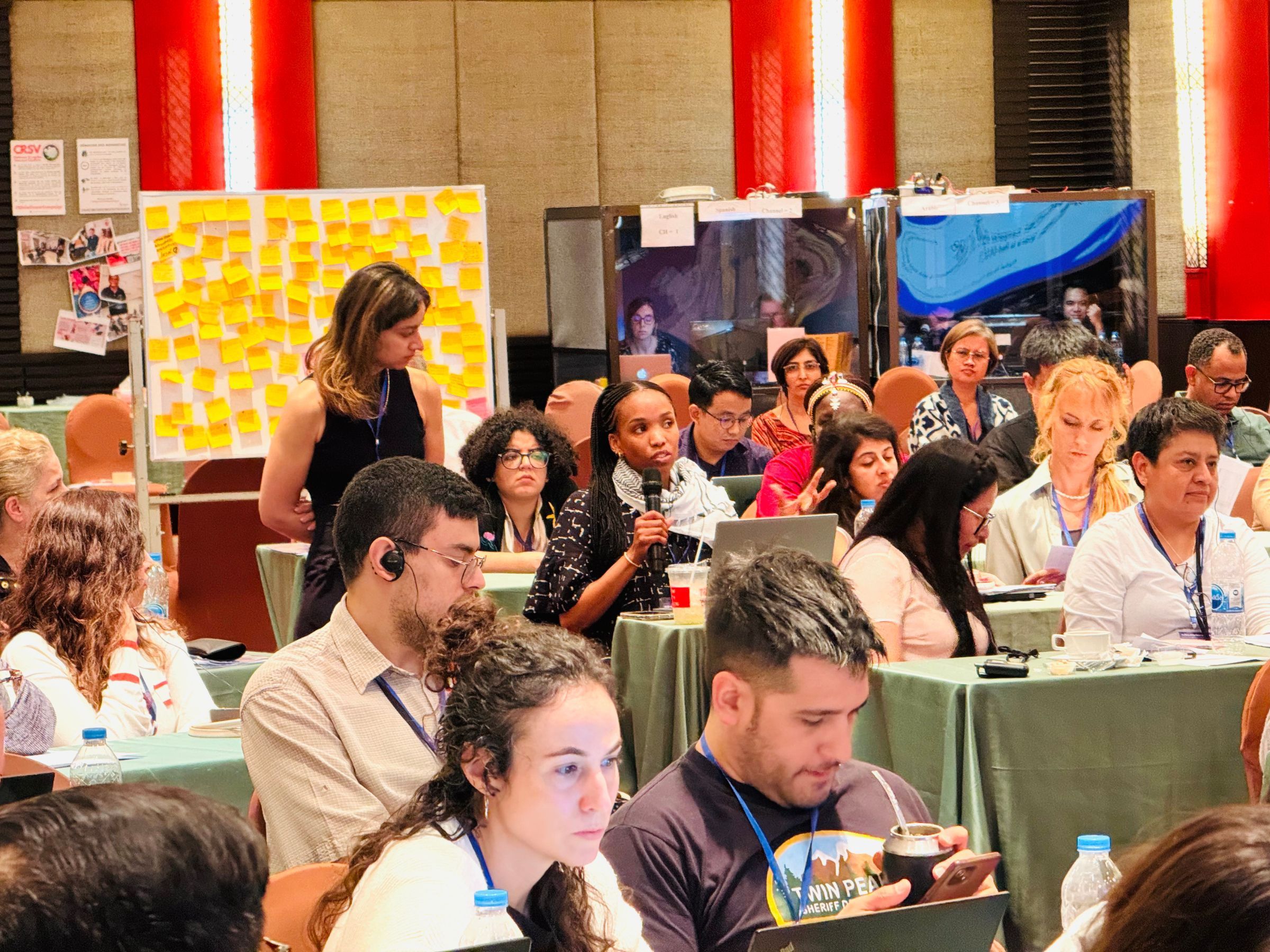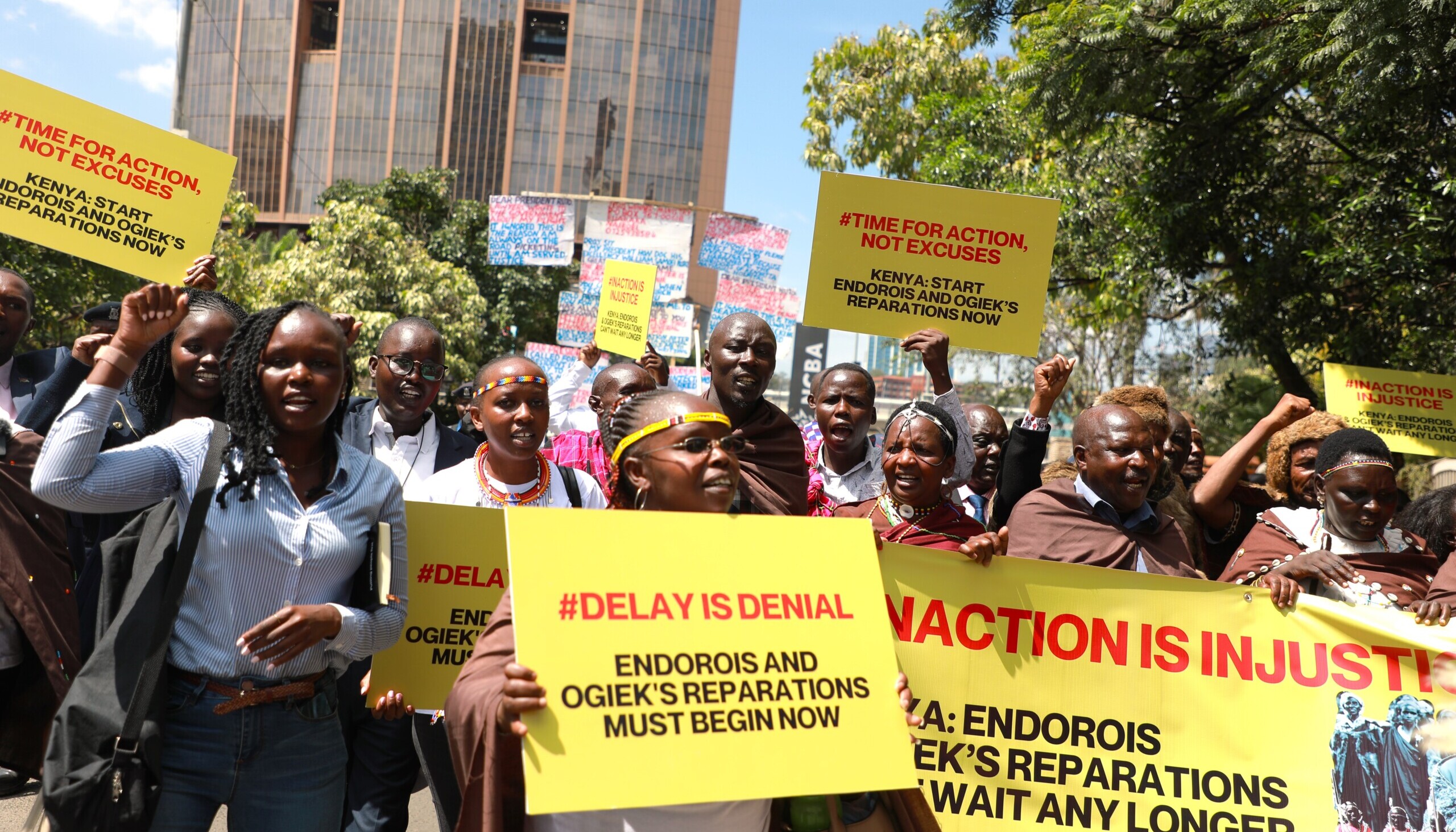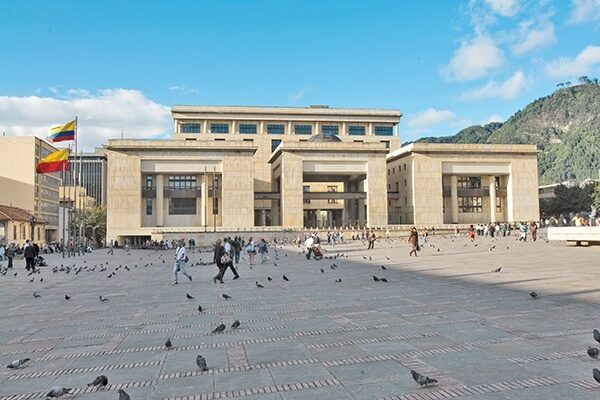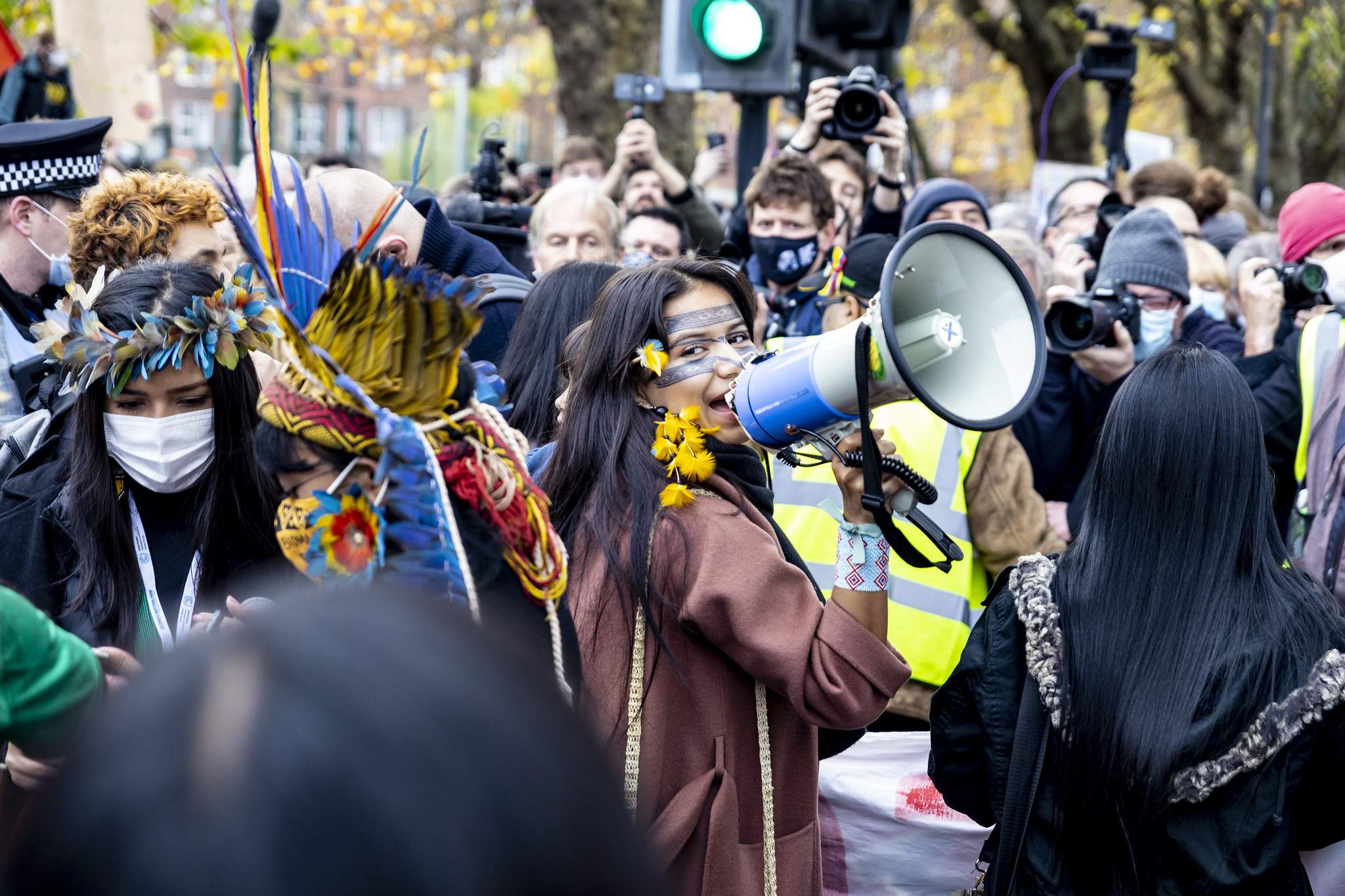According to the ESCR-Net Common Charter for Collective Struggle, “Impoverishment and Dispossession Amid Abundance” is a key driver of human rights violations globally. Dispossession, the unjust deprivation of land, property, and resources, has pushed millions to the margins and led to their impoverishment. This has affected, in particular, women and girls, peasant and rural communities, Indigenous People, the urban working class, communities living in conflict areas, and ethnic and religious minorities. They face forced evictions, land grabs, exploitation, and dispossession by corporate actors, which influence governments and decision-makers, leading to displacement, impoverishment, loss of cultural identity, and destruction of local ecologies.
Despite these challenges, Indigenous Peoples and social movements worldwide are making strides in addressing dispossession. From grassroots organizing to legal advocacy, communities assert their rights, reclaim land, and challenge unjust policies. ESCR-Net plays a vital role in this fight by connecting struggles, analyzing systemic drivers of dispossession, and building power for affected communities. By promoting solidarity and advocating for policy change, ESCR-Net works to secure the well-being of people and the planet, ensuring the right to self-determination for all.
